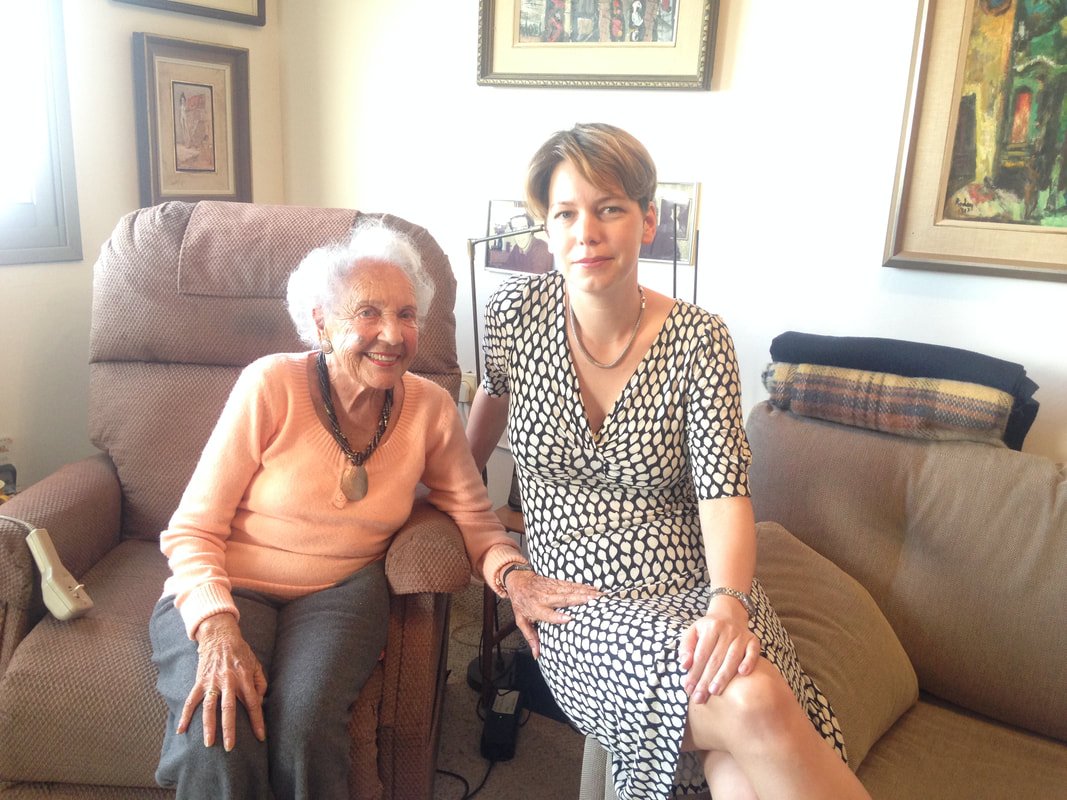The DDGC Blog
est. 2017
The Future of German Studies: GSA Roundtable Summary
Lydia Tang, Patrizia McBride, Vance Byrd, Didem Uca, Regine Criser, Friederike Eigler, and Johannes von Moltke in conversation about the future of German studies.
Call for Submissions: DDGC Blog
The DDGC Blog editors welcome submissions to the DDGC Blog throughout the year. If you have a project, reach out!
CfP: The Multicultural German Project’s Mission Possible: Why German Studies Now?
Contribute to the multicultural Germany project with blog pieces reflecting the relevance of German studies today.
Report: DDGC Town Hall on Job Market Crisis
Report on the first DDGC Town Hall on the job market crisis. Featuring key information that guides the development of initiatives in the DDGC.
Queer (Historical) Figures in the German Language Classroom
Oliver Niels Völkel reflects on queer history in the German language classroom and provides examples as well as a theoretical justification for the work.
Why is Critical Digital Pedagogy Relevant for German Studies?
Nicole Coleman reflects on the 2020 DigPedLab and activates insights from their workshops for German studies classroom practice.
Why 18th-Century German Studies Matters Now
Sarah Vandegrift Eldridge reflects on the relevance of 18th-century German studies and provides a critical annotated bibliography for a reading list for those interested.
In Appreciation and Defense of International Students in German Studies and Beyond
A promise of solidarity from DDGC, WiG, the GSA, BGHRA, and the CAUTG Social Justice Committee addressed to international students in German studies.
Teaching German Queerly: An Integrative Approach
Domenic DeSocio offers an overview of how to integrate queer German studies into German language and culture studies programs.
DDGC’s Long-Term Solidarity with Uprisings in Defence of Black Lives
DDGC Steering Committee solidarity statement with #BLM.
Why Inclusive Curricula are Key to the Future of German Studies
Todd Heidt reflects on the necessity for inclusive approaches to German studies.
Reflections on the Open Letter to the AATG, on Its One-Year Anniversary
David Gramling reflects on the lessons learned from the open letter to the AATG.
Care in the Academy (in Times of a Pandemic)
Regine Criser and Ervin Malakaj call for care and support in German studies during the time of a global pandemic.
Reclaiming Learners’ Agency in Discourses of Discrimination
Julia Ruck reflects on classroom work on discrimination and students’ roles and attitudes during this work.
The War Tribunal of Literature: Publikumsbeschimpfung (Insulting the Audience) with the Nobel Prize 2019 to Peter Handke
By choosing Peter Handke, the members of the academy have indulged in an unflinching endorsement of a genocide denier. If they were trying to insult the literary readership, they have insulted themselves. Anyone who is celebrating this award is insulting the very dignity of human beings.
Why Do German Migration Studies Matter Today?
I would like to argue that German Studies scholars are not only particularly well positioned to engage with migration and its discontents; given the history of German-speaking cultures and the dire situation for migrants and asylum-seekers in the U.S. and worldwide, condemning xenophobic, anti-minority, and racist discourses is also our most solemn duty.
Reflection in the Beginning Language Classroom
With young adults as my students, one of my responsibilities is to guide them toward deeper self-reflection. For that reason, I often include assignments in my courses that ask students to reflect on their own learning experiences and their own development as people who are able to find answers and teach themselves new skills. Such a practice also aligns with the overall educational goals of my institution, Northeastern University, and with the World Readiness Standards put forward by the American Council on the Teaching of Foreign Languages (ACTFL).
Reframing German Migration Studies: Challenging Institutions and Disciplines
Today, with 40 million internally displaced peoples, 25.4 million refugees, and 3.1 million asylum seekers globally, the discipline has much to accomplish by addressing stories of escape, trauma, resettlement and expulsion, and the terms “precarity,” “fear,” “empathy,” and “intimacy,” as it has already begun to do.
Why Do German Gender Studies Matter Now?
It matters because it gives us the language to process these emotions and better understand how their expression shapes our world.



















